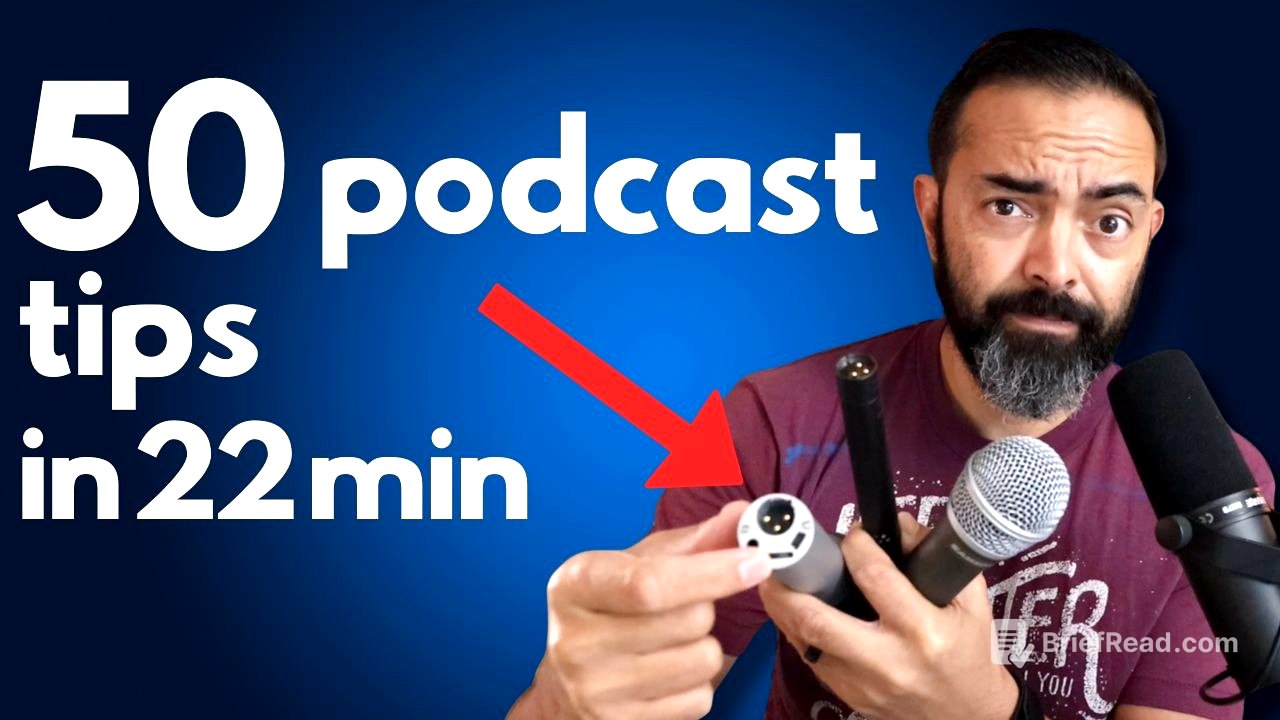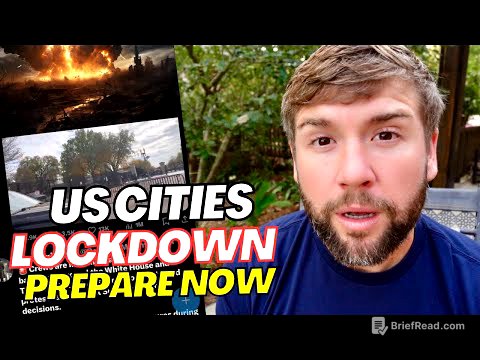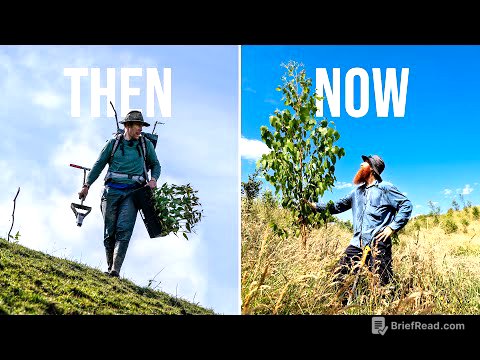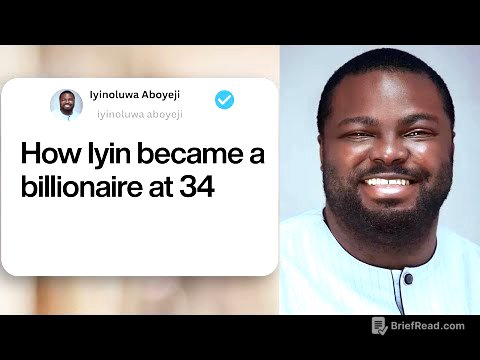TLDR;
This video provides 50 updated tips for podcasters, divided into categories like getting started, equipment, content, and business strategies. It emphasizes passion, planning, consistency, and quality, while also covering technical aspects, content creation, video podcasting, growth strategies, and monetization techniques. The key takeaways include the importance of engaging content, leveraging video, building community, and enjoying the process to achieve long-term success.
- Start with passion and expertise.
- Plan content and maintain consistency.
- Invest in quality equipment.
- Focus on engaging content and storytelling.
- Build a community and leverage video.
Getting Started Tips [0:32]
The first tip is to start a podcast about something you're passionate about and have expertise in, or are at least very curious about, ensuring you can talk about it for hours without getting bored. Next, it's crucial to plan your first 10 episodes before recording the first one to avoid content stagnation and build momentum. Your podcast artwork is also crucial because it's the first thing people see, so ensure it's readable even on small mobile devices. Choose the right length for your podcast episodes, focusing on delivering value without unnecessary fluff or artificial cuts. Finally, consistency is more important than perfection, so pick a schedule you can maintain, ideally weekly when starting out, and stick to it.
Equipment and Technical Tips [1:30]
Invest in a high-quality USB microphone like the Samson Q2U or Audio Technica ATR2100X, which are affordable and don't require extra equipment to sound professional. Use a shock mount and boom arm to lift the mic off your desk, reducing vibrations, and position it about a fist away from your mouth. Record in an acoustically treated space to minimize echo, even if it's just a closet with padding. Always do a sound check to confirm you're actually recording with the correct microphone. Batch record episodes to stay consistent and reduce overload, allowing you to get ahead and maintain your schedule even when you're not feeling motivated.
Recording and Technical Tips [3:10]
Maintain a consistent distance from your microphone while speaking to ensure consistent sound quality. Use headphones, ideally wired, to monitor audio levels and avoid latency or battery issues. Remote interviews are valuable, but avoid using Zoom's compressed audio; instead, use professional tools like Riverside, which records in 4K video and captures audio locally on both sides for better quality. Riverside also offers editing tools, AI-powered transcription, and show notes. When recording video podcasts, lighting is as important as audio, so use natural light or LED panels for a soft wash on your face.
Video Podcasting Tips [5:41]
When conducting remote video podcasting interviews, look at the camera lens to make eye contact with your viewers. Ensure your background looks good, reflecting your personality, and keep the camera at eye level. Export both audio and video from platforms like Riverside to distribute across multiple platforms like YouTube, TikTok, and Reels. Consider using a teleprompter or detailed notes to stay on track, especially for solo episodes or when interviewing guests, while still maintaining eye contact with the camera.
Content and Interviewing Tips [6:59]
Start episodes with a strong hook to immediately engage listeners and make them want to stick around. Tell more stories to create connection and engagement, wrapping teaching points around unique and personal experiences. Ensure your guest is comfortable before starting the recording by engaging in casual conversation and reassuring them. Use the phrase "Tell me about a time when..." to elicit stories from guests. Go deeper by asking "why" to uncover the best information and stories.
Content Creation and Solo Episodes [8:51]
Research your guests to ask unique questions that make them feel comfortable and have fun. For solo episodes, understand the transformation you want to take your audience through and reverse engineer the content. Avoid scripting entire episodes to sound more natural, instead using detailed notes or bullet points. When discussing visual materials, describe them for audio listeners or direct them to where they can view them. Keep link mentions to a minimum, ideally one or two per episode, and use memorable URLs.
Video Podcast Optimization [11:26]
Video podcasts perform best on YouTube, so optimize titles and thumbnails to attract viewers. Create vertical clips from longer shows for platforms like TikTok, Instagram Reels, and YouTube Shorts, focusing on compelling moments in the first two seconds. Include multiple camera angles or screen recordings to enhance visual engagement. Add a trailer or teaser at the beginning of video podcasts to drive viewership. Start with existing video equipment, like a smartphone, and upgrade over time.
Growth and Marketing Strategies [13:57]
The best way to grow your podcast is to be a guest on other podcasts to tap into established audiences. Mention other podcasts to appear in their related podcast sections. Build an email list from your podcast listeners to have a direct line of communication. Create a community around your podcast to foster connections among listeners. Repurpose podcast content into blog posts, social media content, and newsletters. Pay attention to analytics to understand which episodes and topics perform best.
Networking and Audience Engagement [16:43]
Use podcasting to connect with industry leaders and authorities in your niche. Avoid comparing your download numbers to others and focus on your own growth over time. Engage with your audience on social media by personally thanking new listeners and asking for reviews. Create listicle-style episodes, as people love numbered lists.
Business and Monetization Tips [18:27]
Showcase client transformations on your podcast instead of directly pitching products. Integrate affiliate marketing naturally into your episodes. Remember that sponsorships are available even for podcasts with smaller, highly engaged niche audiences. Use your podcast as a lead generation tool for coaching, high-end services, and premium courses. Finally, remember that podcasting should be fun, as your enjoyment will resonate with your audience.









